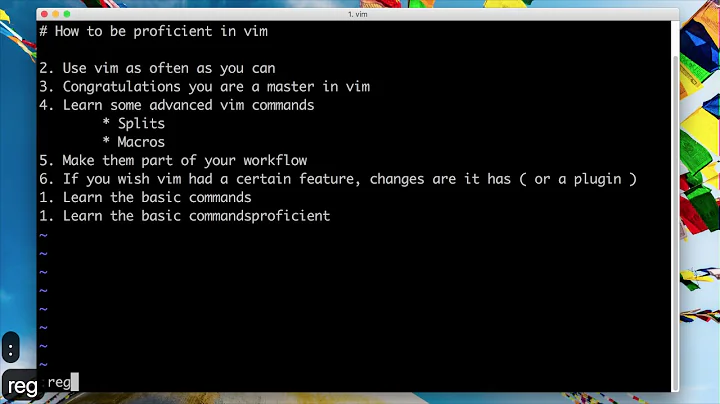Terminal does not accept pasted or typed lines of more than 1024 characters
Probably a limit of the terminal device line discipline internal line editor buffer.
You should be able to enter long lines by pressing Ctrl+D in the middle of it (so the currently entered part be sent to cat and the line editor flushed), or by disabling that line editor altogether.
For instance, if using zsh:
STTY=-icanon cat > file
Note that then you can't use Backspace or any other editing capability. You'd also need to press Ctrl-C to stop cat.
With other shells:
s=$(stty -g); stty -icanon; cat > file
Followed by:
stty "$s"
Or just:
stty -icanon; cat > file
stty sane
Of course, things like
cat | wc -l
or
wc -l
won't work. Because Ctrl+C kills all the processes in the foreground process group.
You could do:
STTY=-icanon cat | (trap '' INT; wc -l)
STTY='eol " "' wc -l
That way, the buffer will be flushed every time you enter space. You're still in canonical mode, so you can still edit words (as opposed to lines) and use Ctrl+D to signify EOF.
Or:
STTY='-icanon min 0 time 30' wc -l
EOF will come 3 seconds after you stop typing. Or:
STTY=-icanon sed -n '/^EOF$/q;p' | wc -l
And enter EOF (the 3 letters on a line on its own) to end the input.
As suggested by Gilles, where possible (as in generally not a telnet/ssh session for instance), use pbpaste instead of pasting. (That's on OSX; under X11, call xsel or xclip.):
pbpaste | wc -l
That will also avoid problems with some control characters (like ^C) that may be found in the copy-paste buffer.
Related videos on Youtube
Eric O Lebigot
Updated on September 18, 2022Comments
-
Eric O Lebigot over 1 year
When I enter text on stdin in an OS X Terminal, a single line is limited to 1024 characters. For example,
cat > /dev/nullbeeps after I type (or paste) a line longer than this, and refuses to accept more characters. A problematic example is when I want to count characters from pasted text withcat | wc -c: thecatblocks at the first long line.This seems to be a general problem with pasting to stdin. Can this observed stdin limitation of 1024 characters per line be removed or pushed to a higher limit?
I need this because I want to paste text that has lines longer than 1024 characters.
I could also use a "heredoc"
<< EOTand paste my long lines without any problem, but then the text appears in my shell history, which I don't want.-
 Admin almost 9 yearsThat's annoying. I guess the Heredoc approach is a tolerable work-around, since you can tell the shell to not add a command line that starts with a space. See Is there any way to keep a command from being added to your history? for details for various shells, including zsh.
Admin almost 9 yearsThat's annoying. I guess the Heredoc approach is a tolerable work-around, since you can tell the shell to not add a command line that starts with a space. See Is there any way to keep a command from being added to your history? for details for various shells, including zsh. -
 Admin almost 9 yearsThis is a badly phrased question. In the Z shell the limit is not 1024 characters. You're actually talking about a limit that is not implemented by the Z Shell, nor in force when the Z shell is the program that is reading input from the terminal. In this case, it is
Admin almost 9 yearsThis is a badly phrased question. In the Z shell the limit is not 1024 characters. You're actually talking about a limit that is not implemented by the Z Shell, nor in force when the Z shell is the program that is reading input from the terminal. In this case, it iscatthat is doing the reading, and the Z shell isn't involved. This ground has been covered before, withcat, at unix.stackexchange.com/questions/131105 . -
 Admin almost 9 yearsCall
Admin almost 9 yearsCallpbpasteinstead of pasting. (That's on OSX; under X11, callxselorxclip.) -
 Admin almost 9 years@JdeBP My question was obviously not about zsh but about the
Admin almost 9 years@JdeBP My question was obviously not about zsh but about thecatcommand not working like I needed: I was giving details about my environment (zsh, OS X Terminal), in case they mattered. -
 Admin almost 9 years@Gilles Your solution deserves to be put in one of the answers. I will let you do it if you want, otherwise I will do it: it can really be useful.
Admin almost 9 years@Gilles Your solution deserves to be put in one of the answers. I will let you do it if you want, otherwise I will do it: it can really be useful. -
 Admin almost 9 years@Gilles A
Admin almost 9 years@Gilles Apbpaste/xclipsolution should mention the fact that it does not work on a remote host, since it does not have the same clipboard as the local host. -
 Admin almost 9 yearsyou can use a clipboard manager as mentioned, or you can switch to non-canonical input as mentioned, or you can try a program that can do that stuff for you. You might have luck with
Admin almost 9 yearsyou can use a clipboard manager as mentioned, or you can switch to non-canonical input as mentioned, or you can try a program that can do that stuff for you. You might have luck withless -f /dev/tty | outor better withex - ^Mo^M<paste>^[:wq!where the ^escapes in the last stand in for real keypresses. I thinklessshould basically set the terminal to raw and handle its own line wrapping - and definitelyex/vi/opendo... well, definitelyvi/opendo (exis definitely canonical). -
 Admin almost 9 years@mikeserv Thank you for the ideas. The
Admin almost 9 years@mikeserv Thank you for the ideas. Theless - f /dev/ttydoes not work, for me, unfortunately. Another idea, though, for remote host pasting, is to uuencode first (so as to get short lines).
-
-
Eric O Lebigot almost 9 yearsThis does indeed allow me to paste long lines. However, it does not work for the general case of pasting to stdin: for example,
STTY=-icanon cat | wc -cdoes not produce any result (I guess that the necessary Ctrl-C killswc). -
 mikeserv almost 9 years@EOL - Well, i figured
mikeserv almost 9 years@EOL - Well, i figuredwcwas waiting on the end of a line. INT and TSTP will both flush i/o - but TSTP can be recovered. CTRL-Z +fgmay help - but can you not just do CTRL-J? (it's the newline char). Alternatively you can:cat | ( trap '' INT; wc -c), but that assumeswcis well-behaved enough to die at the end of its input - probably a safe-assumption, though, given its purpose.dd, as mentioned, will always write on INT, andteecan be told to-ignore interrupts. Honestly, your heredoc idea was best, though - look atHIST_NO_STOREinman zshall.shly:set -o nolog. -
Eric O Lebigot almost 9 yearsThank you for all the ideas. Ctrl-J does not quit
cat, sowcis never run (the pasted text already contains many newlines, so it is fortunate thatcatdoes not quit on newline :) ). Yourtrapidea works (after STTY=…). It's a little bit involved, for simply counting characters, though. On a local machine,pbpaste | wc -cand friends is good. -
 Stéphane Chazelas almost 9 years@EOL, see edit for other alternatives.
Stéphane Chazelas almost 9 years@EOL, see edit for other alternatives. -
 mikeserv almost 9 years@EOL - i dunno.. i don't think there are newlines in the cut buffer - which, i think, is the source of your problem. I think probably there are line-feeds or returns - or, actually, since i think Macs only honor returns by default, maybe the source of the problem is reversed? Anyway, if there are end-of-line chars in the cut buffer the canonical terminal should not hang as it does - each \n/\r (whichever) should flush the buffer when pasted. Switch
mikeserv almost 9 years@EOL - i dunno.. i don't think there are newlines in the cut buffer - which, i think, is the source of your problem. I think probably there are line-feeds or returns - or, actually, since i think Macs only honor returns by default, maybe the source of the problem is reversed? Anyway, if there are end-of-line chars in the cut buffer the canonical terminal should not hang as it does - each \n/\r (whichever) should flush the buffer when pasted. Switchwcto-land see what it reports, also consider setting a literalstty eol <char>and/ori(cr|nl)(nl|cr)as appropriate. -
 mikeserv almost 9 years@EOL - I wrote an answer here about how the
mikeserv almost 9 years@EOL - I wrote an answer here about how thestty eolsetting might be used in some situations to overcome a canonical line-discipline's maximum line-length. It may be applicable to your problem as well.






